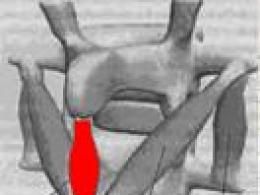Why are proteins harmful? Are protein supplements bad for the body?
The benefits of protein for a person are expressed in two directions - this is a rapid build-up of fairly good muscle mass and weight loss.
Many bodily functions, such as metabolism, immune function or the synthesis of certain hormones, are due to protein. It is instantly absorbed and immediately begins to work. Protein shakes are drunk for the purpose of:
- Stamina Boosts
- Rapid muscle growth
- For energy
- Enrichment of the body with valuable substances
Protein as a sports nutrition is most often in the form of a powder. Cocktails are made from it and taken at certain times throughout the day. On a can of powder, manufacturers indicate the amino acid composition of the mixture - the amount of useful substances contained in a concentrated protein. Most often, minerals and vitamin complexes that are useful for athletes, as well as glutamine and creatine, are attached to the protein.
Types of protein
Natural sources of protein are: fish, chicken meat, dairy products, beef, eggs. An active athlete who wants to increase muscle mass needs to consume huge amounts of these foods daily, which is almost impossible. In this case, protein formulations come to the rescue, from which delicious cocktails are obtained, which should certainly be included in his diet.

Depending on the training conditions and goals, you need to choose the right type of protein. According to the type of raw material, it is divided into 7 main types, and the harm and benefits of protein in each case may also differ.
Types of protein mixtures:
Whey (concentrate, isolate, hydrolyzate)- one of the most common and fastest types of protein with an excellent amino acid composition. The protein level, depending on the type of mixture, ranges from 75 to 96, and the most expensive and fastest in digestion is the hydrolyzate.
Casein - is absorbed by the body for about 6 hours and is considered the slowest type of protein. Experienced athletes recommend using it before bedtime in order to restore muscles during the rest.
Soy - has an average digestibility, it is one of the inexpensive types of protein. It helps to lower cholesterol, but is not very popular, as it has a low quality of the constituent protein and vegetable origin.
Wheat - in its characteristics is similar to soy protein. Most often used by people who are lactose intolerant to lose weight.
Dairy is a combination of whey and casein proteins. Due to the unique composition, one part of the mixture is quickly absorbed, and the second enriches the muscles with the necessary amino acids for a long time.
Egg - occupies a leading position in the quality of amino acids and fast digestibility (after the whey type). This protein is not cheap and has a specific taste.
Meat - has high-quality amino acids in a high concentration (35-40). Very quickly and easily absorbed by the body.
Harm
Is protein harmful?
Of course, every person interested in sports nutrition wonders if protein is harmful. Since it is absolutely natural in composition and is made from ordinary high-calorie foods, protein cannot cause harm to the body. The only thing to watch out for when taking protein shakes is a low-quality product. Harm, and not benefit, can bring proteins to a person if they are consumed in large quantities and do not follow the directions on the label.

In long-term studies, it was found that low-quality soy protein may not have the best effect on the state of the body. It contains phytoestrogens - substances similar in molecular structure to female hormones. The use of such cocktails can lead to a decrease in testosterone levels and overweight. Also, we should not forget that the basis of soy protein is genetically modified raw materials, and the intake of such products poses a serious threat to our health.
To determine if a protein is harmful, it is best to familiarize yourself with its ingredients and study the side effects of taking it before using it.
Side effects after taking protein:
- Allergic manifestations
- Kidney dysfunction
- Digestive disorders (flatulence, nausea, vomiting, bloating)
- The occurrence of acne (most often after taking a whey type of protein)
- Overweight and activation of the growth of tumors present in the body (after taking soy proteins)
Any type of protein is contraindicated for people who have chronic kidney diseases or have an individual intolerance to at least one component of this product.
Benefit
Benefits of Protein
To keep the body in excellent shape, a person needs to consume enough protein. Its amount can be different - this indicator depends on the lifestyle and condition of the muscles. Moreover, we always need protein, as it is consumed even during sleep.

The benefits of protein are as follows:
- It is needed by all vital systems of the body, since with its deficiency, their functions deteriorate.
- Protein must be present in the diet of athletes during the period of muscle building - with its deficiency, muscular dystrophy can develop, which will lead to a partial loss of limb mobility.
- Protein affects the composition and quality of blood, normalizes the level of hemoglobin.
- Proteins provide active work of the body's defenses, forming a powerful immune system.
- Proteins are necessary for a good metabolism in the body, and this is the key to normal weight and proper functioning of all internal organs.
- Proteins regulate hormonal levels, activate brain activity, and promote rapid tissue regeneration.
- Protein helps the body recover quickly after physical exertion, normalizes blood pressure and suppresses hunger.
How to choose a protein
The choice of protein directly depends on the end result that a person wants to achieve. It is best to consume several types of product with different characteristics and digestibility.

According to the degree of assimilation, protein supplements are divided into three types:
Fast (whey)- necessary for severe exhaustion of the body, during active muscle growth and weight loss. Fast proteins are taken before training, at the end of classes and in the morning, when the body is in a strong need for protein.
Slow (caseins, soy proteins)- are used as an auxiliary product for weight loss and muscle gain. They replace 1-2 meals, but they must be taken strictly at the allotted time, best at night.
Complex - contain a mixture of several types of protein, provide nutrition to the body with valuable amino acids, are quickly absorbed, and at the same time enrich the muscles with the necessary amount of protein.
How to take protein
Standard recommendations for use are the same for men and women whose body is subject to strong physical exertion. In the morning, it is better to take a whey shake, between meals - a complex one, after a workout, whey again is required, and before going to bed - a casein type of protein.

It is best to dilute the protein in water or milk. You should remember the main rule for taking any kind of cocktail: it cannot be diluted in boiling water, otherwise the protein will curdle. It is strongly not recommended to consume a large portion of proteins, since the digestive system may not be able to cope with such a load and not absorb some of the substances.
Dosage of protein per day for building muscle mass:
- Medium build - 300.350 g
- Prone to fullness - 250.300 g
- Slightly overweight - 250.300 g
- Obese women - 180.250 g
For people weighing more than 100 kg, the daily protein requirement should be calculated in the amount of 4 g per 1 kg of body weight.
Protein for weight loss
In order to lose weight and build relief, you need to choose a protein with a minimum amount of carbohydrates and fats in the composition. The best in this category is protein isolate - the amount of these substances in the preparation is zero. Such a cocktail is taken in the morning, before training and at the end of it. In parallel, it is recommended to take high-quality fat burners.
The norm of the use of protein formulations for weight loss:
- For men - within 130.160 g
- For women - in the amount of 100.140 g
Correct and accurate information about the types of this product, about its norm per day and recommendations for admission will completely eliminate questions about whether the protein is harmful and how it should be taken. The main rule during the course of taking this supplement should not be neglected: it is impossible to completely replenish the body's daily protein requirement with protein! Valuable substances should be supplied in an amount of 50% with food, and only the remaining 50% can be replaced with protein preparations.
Recently, training in the gym has become a fashionable activity, and athletes take supplements, including protein. Is protein harmful to men's health, or can it be taken without restrictions? Someone claims that sports nutrition is effective for muscle growth and has a beneficial effect on health, while someone is sure that you should not use such substances, as they are dangerous.
To answer these questions, you need to understand how sports nutrition works.
What is sports nutrition
There is a strong opinion in society that sports nutrition is a dangerous drug for health. Protein is often confused with real drugs - steroids, but there is a huge difference between them and sports protein. The negative attitude of society towards steroids has its advantages: a novice athlete will not risk taking an unfamiliar drug. This can save him from possible health problems in the future.
Let's figure out what protein consists of, and what benefits and harms exist when using it.
Proteins are present in common foods: meat, eggs, fish. Human muscles are made up of proteins. When a person does a lot of sports and receives large power loads on the muscles, they begin to grow. For successful muscle growth, an athlete needs to get enough protein, but the right amount of protein is not always found in food, which is why sports nutrition was invented.

Sports nutrition is 100% protein. The main component is whey, from which fats and carbohydrates have been removed, water has been evaporated. The resulting powder is packaged in jars and sent to sports stores. To the question of why protein is harmful, you can answer that nothing if you use it correctly. The use of any substance without measure can cause a number of health problems. Vitamins are also useful and necessary for life, but if they are taken in excess, hypervitaminosis will occur.
In order for sports nutrition to bring benefits, not harm, you need to have an idea of \u200b\u200bhow to take it correctly. It is difficult to calculate the exact amount of protein necessary for the body, however, on average, an athlete who is actively involved in the gym needs up to 3 g of protein per day per 1 kg of weight. It is almost impossible to get so many proteins from ordinary products, so they resort to sports powder. Its regular use will make up for the lack of proteins in the body and will allow you to build beautiful strong muscles.
Truth and fiction about the dangers of additives
Myth 1: sports nutrition causes problems with potency. This is not true. Since sports nutrition is 100% natural protein, it cannot harm your health in any way. If there are problems with the athlete's potency, then most likely the following reasons take place:
- A person is too tired in training.
- Perhaps, in connection with the opinion of society about the dangers of sports supplements, the athlete inspired himself that he would have problems with potency. Self-hypnosis can actually cause various disorders of the body.
- The athlete uses fake or low-quality sports nutrition.
- The probable reasons lie in an unbalanced diet: enough proteins enter the body, and there are few vitamins or fats.

Myth 2: harm to the kidneys and liver. There is some truth in this, but it all depends on how you use the supplement. Indeed, the liver and excretory system may suffer, but this can only happen if the supplement is consumed in large quantities. With ordinary food, it is not possible to obtain such an amount of protein, but taking sports nutrition is easy. With an increased amount of protein, the liver and kidneys will receive an additional load in an attempt to remove excess substances from the body. Therefore, you should be careful about the amount of sports supplements used: there is nothing dangerous in the recommended amounts of protein.
Myth 3: Excessive weight gain. Many people believe that sports supplements lead to uncontrolled weight gain. Indeed, with active physical exercises and eating supplements, weight increases, but this happens solely due to the growth of muscle mass. Unused proteins are excreted from the body with the help of the liver and kidneys.
In addition, there are even special protein diets, the meaning of which is to play sports and consume the required amount of protein. At the same time, the consumption of fats and carbohydrates is limited. Even women use them.
It should be borne in mind that for the diet you can not use a mixture of proteins and carbohydrates - gainers. Remember that when dieting, you should limit the intake of fats and carbohydrates, but not completely exclude them from the diet.
From this we can conclude that the protein for men and women is not dangerous if used correctly.
Protein can be called one of the main products of sports nutrition. It is advised to use it for those who want to gain muscle mass, and those who want to lose weight.
The benefits of protein supplements have already been appreciated by many athletes. But there are many people who still treat protein with distrust, considering it a harmful chemical that can make a healthy person disabled.
So are proteins bad?
Protein is a protein supplement, and protein is very important for everyone's life. Proteins are not only building blocks for cells. From them, enzymes, hormones, antibodies and other compounds important for life are synthesized. Since natural raw materials (milk, eggs, soybeans, beef, peas, rice and other products) are used for the production of proteins, it is completely incorrect to call protein chemistry.
 So, in a jar of powder to improve taste and other properties, some chemical additives are usually present. First of all, these are sweeteners and flavorings. And if you want to reduce your chemical intake, then your choice is a protein without additives, which does not contain such additives. Fortunately, the choice of proteins in stores is now large and finding powder without taste or with the addition of natural flavors and harmless sweeteners is not a problem.
So, in a jar of powder to improve taste and other properties, some chemical additives are usually present. First of all, these are sweeteners and flavorings. And if you want to reduce your chemical intake, then your choice is a protein without additives, which does not contain such additives. Fortunately, the choice of proteins in stores is now large and finding powder without taste or with the addition of natural flavors and harmless sweeteners is not a problem.
Is protein bad for health?
The proteins used by athletes are made from regular milk. In the production of cheese or cottage cheese, whey is formed. It is she who is the basis for the production of protein. It is dried and cleaned of excess fats and carbohydrates (in this case, lactose).
The powder obtained during the drying process is nothing but protein. Therefore, this is a natural product and talking about its dangers is perhaps ridiculous.
 With the right dosage, proteins can make up for the lack of protein in the athlete's diet. Exceeding the dose can certainly bring harm, but this applies to any food product. It follows that the harm of protein to health is nothing more than a myth supported by people who do not understand the essence of the issue.
With the right dosage, proteins can make up for the lack of protein in the athlete's diet. Exceeding the dose can certainly bring harm, but this applies to any food product. It follows that the harm of protein to health is nothing more than a myth supported by people who do not understand the essence of the issue.
What is the benefit of protein
Sports nutrition helps to balance the diet for those who do not have the opportunity to eat rationally, consuming enough protein from natural products. If for some reason there isn't enough protein on your menu, a powdered supplement can help you out. With a lack of protein in food, especially if you play sports, you can forget about building muscle mass.
Other benefits of protein are:
- The powder is convenient to store, and the cocktail is easy to prepare.
- For those who want to lose weight, there are protein mixtures for weight loss with a minimum of carbohydrates and fat.
- You can choose protein with different absorption rates depending on your needs. For example, a fast-digesting whey protein is ideal after a workout, while a long-acting whey protein is a good choice for a meal replacement.
- Valuable amino acids are often added to protein.
About the possible dangers of protein
- Most often, side effects occur either from a poor-quality product, or due to individual intolerance. Harm from eating protein is possible in people with lactose intolerance or kidney disease.
- With excessive protein intake, digestive problems (flatulence, constipation, diarrhea) can occur. Protein mixtures for weight loss are recommended to be consumed in a single serving, usually 30 g of powder. The daily rate of protein intake is calculated according to a person's weight: 1.5-2 g per 1 kg of body weight.
Why protein is needed: Video review
Modern society has turned the vector of attention towards a healthy lifestyle. Now it has become fashionable to visit sports and gyms, to demonstrate a toned figure, muscles, and a good stretch.
Protein - a catalyst for muscle growth
Most prefer to engage in weight lifting, which helps to quickly adjust the figure, gain muscle mass. In order for the process to go even faster, athletes begin. As you know, the rate of growth of muscle mass directly depends on the level of proper and balanced protein nutrition. Protein in this case acts as an excellent catalyst.
Protein is consumed by many, strenuously. Some do not dare to take such a step, because they believe that it can bring a lot of harm to the body.
Harm or benefit?
Almost all professional athletes and medical doctors assure that protein is a special protein that cannot be replaced by other components. It is thanks to him that the growth of muscles and cells of the body occurs. For an athlete, drinking a protein shake has become the norm. At the same time, the stronger the load during training, the more cocktails are consumed.
At the moment, there is no clear answer about the dangers or benefits of protein. The vast majority of people involved in sports believe that the substance is harmless if it is used in the required amount, following the regimen.
There have been cases when excessive protein intake has led to side effects. The dosage should be selected purely individually, based on the loads and frequency of training.
Sports doctors have deduced, according to which it is necessary to consume no more than 1 gram of protein per 1 kilogram of human weight every day. In this case, there will be no harm to health. When protein is consumed in unlimited quantities, the level of trace elements increases, and this directly affects the state of the body. The person begins to feel worse, the general tone decreases.
The gastrointestinal tract, nervous system, suffer from excessive. This is a signal that you should stop or limit the use of the drug.
Protein is not a steroid
It is extremely important to consume high-quality proteins made from meat, soy, eggs, casein, or whey. Quality proteins are made entirely of protein.
Summary
Protein, when used correctly, helps to quickly build muscle mass, since the whole is composed of protein. However, there are different types of proteins. Some are designed to be consumed immediately after waking up, others before a workout, others after a workout, and so on. It is important that the product is of high quality.
If protein is consumed excessively, side effects may occur. First of all, the gastrointestinal tract suffers. This leads to a deterioration in the general condition, loss of desire to train. According to athletes - all the protein eaten should be produced on
The dangers and benefits of protein powder have been talked about, talked about and will be talked about by both those who are against taking this food supplement and those who consider it a necessary addition to nutrition. First of all, this applies to athletes involved in gyms. Most of them prove in every possible way that the benefits of protein are undeniable, and talk about its dangers is unfounded and even delusional. Well, let's see if the protein is harmful or not for us.
From myself, I’ll immediately say that I am against taking low-quality protein, since it is low-quality nutritional supplements, which, as a rule, are produced in basements, often contain alien, artificial, unfamiliar substances to the body. Their benefit, compared to the harm they can cause, is much less.
That is why kidney stones came out of several of my friends who thought differently or simply did not have the necessary information about high-quality protein. Too bad I didn't recommend them earlier. Okay, jokes aside. Get to the point.
What do I constantly encounter when talking about this topic with some characters in the gym? A lot of guys think they know everything, but they really don't know anything.
One of the best manufacturers in the world is considered to be Optimum Nutrition- a leader in the nutrition market for athletes. Protein products of this brand are presented on this page.
Choose, buy, grow on health. That's what you need!
What is protein and what are its benefits?
Let's clarify this point once and for all: protein is the second name for protein (many people get confused about this).
Protein powder is a nutritional supplement primarily composed of protein, often with a neutral taste, prepared from natural ingredients by a conscientious manufacturer.
If you are taking protein, then I advise you to buy it from reliable sellers. It is very important that it be of high quality, otherwise there may be more harm to the body than good.
Protein is a building material not only for muscles, but for all cells in your body. An interesting fact is that protein is the only source of nitrogen absorbed by the body.
- read in a separate article.
Protein must be present in the diet of pregnant women (to increase the amount of blood in it, the growth of the uterus, placenta, mammary glands) and lactating women. Protein takes part in the structure of skin cells, hair, nails, muscles, blood, and also promotes their regeneration.
Our hormones, enzymes and antibodies also contain protein. It is very useful for children who grow like mushrooms after rain - very quickly. Their body needs protein every year more and more.
An additional source of protein is needed for older people with digestive problems, chewing food, eating little protein.
The need for protein increases with significant physical activity. Therefore, athletes eat it in batches. Well, not in packs, of course, but in spoons. Protein is said to be bad for the body in amounts of more than two tablespoons a day.
It should not be given to children between the ages of 1 and 12 months, because excess protein is harmful and will accumulate in the baby's digestive organs. And this is a big burden on the body.
Protein is a supplier of energy and materials for the formation of muscles and blood, as well as vital amino acids that cannot be produced in the body and must be supplied with food. The protein supplement promotes weight loss due to the fact that problematic carbohydrates are absorbed better.

Usually, protein is taken in 1-2 tablespoons, adding to food or drinks. On the packaging of the product, the manufacturer usually indicates recommendations for use. Read the label carefully.
Disadvantages and harms of protein
All of the following side effects can occur only in excess protein in the body.
- The increased protein content greatly overloads the kidneys and leads to a malfunction of the digestive tract.
- Over time, muscle fibers and tendon fibers become weak.
- The body ages prematurely.
- Hair loss and eyesores are possible.
- Anemia.
- A significant decrease in sperm production in men.
- General weakness of the body, muscle weakness.
- The stomach descends and down to the pelvis, the large intestine is displaced.
- The intestines weaken and lose their former productivity.
- Bloating and gas formation.
- Swelling of the joints of the legs in the evening.
- Swelling of the face in the morning.
- Hanging bags under the eyes.
- The content of sugar in the blood decreases.
- In women, the uterus may prolapse. The same is true for other organs.
Again, these side effects can only occur if you consume too much protein.
I advise you to take it as the manufacturer writes on the bank, and buy only high-quality products in a reliable store, as I do. In addition to sports nutrition, also take dietary supplements and vitamin complexes, which can also be buy on iHerb.
What do you think about this? How do you feel about unreliable distributors of burnt sports nutrition? Leave a comment.
Denis Statsenko was with you. All HOS! See you






